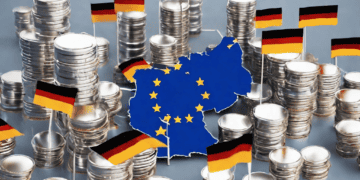In a recent development, Germany has announced its decision to abstain from voting on a crucial European law with far-reaching implications for supply chain management. The proposed legislation aims to hold large companies accountable for their supply chains, particularly concerning issues such as child labor and environmental damage. The decision, as communicated by the Social Democrat labor minister, Hubertus Heil, has garnered attention due to its potential impact on the European landscape.
The Background: The European Union has been actively considering legislation that would require large companies to take proactive measures if any instances of child labor or environmental harm are discovered within their supply chains. This initiative underscores the EU’s commitment to ethical supply chain practices and environmental sustainability.
Germany’s Stance: Minister Hubertus Heil, a member of the Social Democrat party, has been a key proponent of this legislation. However, the co-ruling Free Democrats have rejected his proposals to approve the law. Consequently, Minister Heil announced that Germany would abstain from voting on the law, a decision that has raised questions and concerns.
Potential Implications: The decision to abstain from voting has generated debate both within Germany and across Europe. Minister Heil believes that this stance could lead to confusion and incomprehension among Germany’s European partners. It highlights the complexities surrounding the proposed legislation and the differing viewpoints within the German government.
The European Union’s drive for supply chain transparency and ethical sourcing remains a prominent issue on the international stage. Germany’s position on this matter is significant, as it reflects the delicate balance between economic interests and ethical considerations in the realm of international trade.
The Supply Chain Report will continue to monitor this situation closely and provide updates on the evolving landscape of supply chain transparency, compliance, and international trade policies. Stay tuned for further insights into this crucial issue.
















